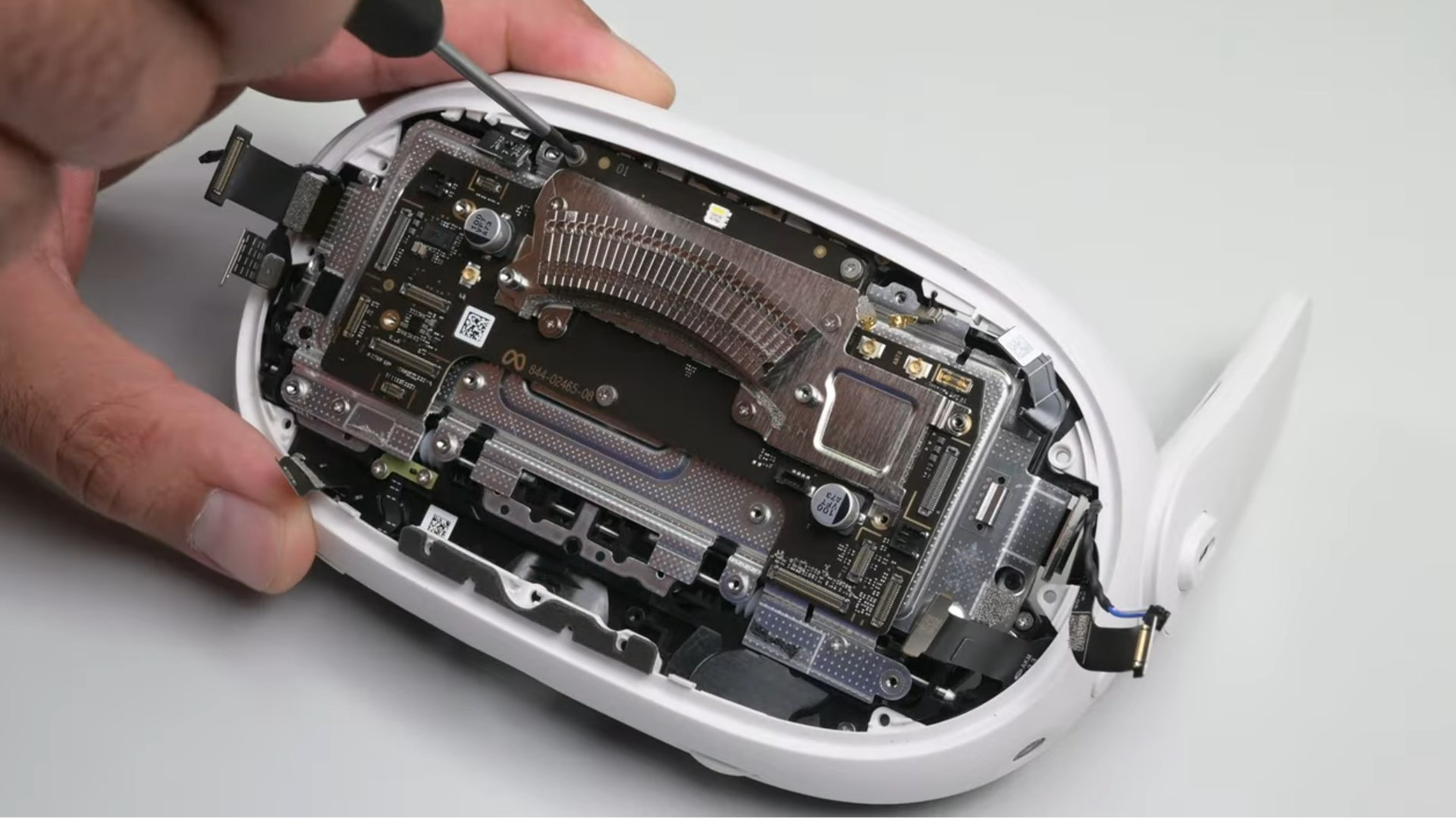Meta says fewer Quest 3s are gathering dust – is VR’s biggest issue a thing of the past?
Meta Quest 3 retention is at a record high, per Meta

During this year’s Game Developers Conference (GDC 2024) Meta has revealed that the Meta Quest 3 has higher retention rates than any of its previous VR headsets – suggesting one of VR’s biggest problems might be a thing of the past.
VR gadgets have become incredibly popular in recent years – just look at the sales success of the Oculus Quest 2, and the massive hype around the Apple Vision Pro – but there’s been a quiet killer for them all: retention. According to an internal report shared by The Verge in March 2023, Meta was concerned about the relatively low engagement of Quest 2 users and it was apparently stressed to staff by Mark Rabkin, Meta’s vice president of VR, that the company needs to “be better at growth and retention.”
That emphasis seems to have paid off, with it now being said by Chris Pruett, Meta's Director of Content Ecosystem, that the Quest 3 has a higher retention rate than any previous Meta / Oculus headset.
Why are people using their Meta Quest 3 more?
Meta hasn’t given any direct explanation of why its headsets are proving better at retaining owners’ attention than its predecessors, but we have more than a few theories.

The first, and perhaps most important, is the Quest 3's simplicity. If it’s charged up you can just slip it on and start playing a VR game instantly – unlike older PCVR models. This reason is likely also why the original Oculus Quest had the highest retention of any Oculus headset ever according to John Carmack in 2019 (Via UploadVR)
Another likely reason the Quest 3 has been able to take things up a notch in terms of retention is software. The Quest store has been up and running for roughly five years, and in that time developers have created a superb VR catalog of cross-platform and exclusive software.
The Quest 3 has also raised the bar with good specs, and solid mixed reality passthrough, adding even more opportunities for app creators to develop meaningful software that owners want to use regularly.
Sign up for breaking news, reviews, opinion, top tech deals, and more.
This, and the headset’s less bulky and comfier-to-wear design, are, as we see it, the two biggest reasons why we’ve started using the device more regularly than the Quest 2.
Lastly, there’s a belief that the Quest 3’s higher cost could be helping its retention levels. At $299 / £299 / AU$479 the Quest 2 was almost a tech impulse buy – especially considering it also came out not long before the pandemic, a period when people typically had more disposable income.
Whereas at $499.99 / £479.99 / AU$799.99 – and launching at a time when disposable income is typically a lot lower – the Quest 3 is much more of a considered purchase. So if you aren’t planning to use the new Meta device fairly often, you’re more likely to talk yourself out of buying it.

Why does higher retention matter?
Beyond making it easier to get a VR squad together to play a multiplayer game, why does a higher retention rate matter to you or us?
From a hardware perspective, it suggests that the Quest 3 is doing something right – whether it's the mixed reality focus, its newfound balance of specs and cost, or a mixture of factors. This could clue us into what future devices might look like; specifically that they could try to follow the Quest 3’s lead by leaning further into mixed reality, or the mainline Quest headset maintaining a similar price point (in exchange for better specs) – which could pave the way for the rumored cheaper Meta Quest 3 Lite.
It may also encourage more VR software development, as it shows developers that there is a reliable market for meaningful VR software. So if you have a Quest headset already, you might see more and better apps launch in the future.
Given Meta made the announcement at GDC 2024, it's likely hoping that this latter point proves true. However, given the speed of hardware and software development, we'll likely have a little while to wait and see what the Quest 3’s newfound popularity means in practical terms.
You might also like

Hamish is a Senior Staff Writer for TechRadar and you’ll see his name appearing on articles across nearly every topic on the site from smart home deals to speaker reviews to graphics card news and everything in between. He uses his broad range of knowledge to help explain the latest gadgets and if they’re a must-buy or a fad fueled by hype. Though his specialty is writing about everything going on in the world of virtual reality and augmented reality.